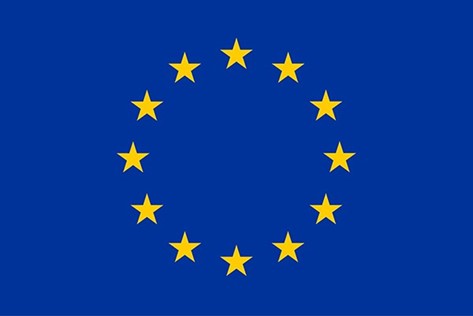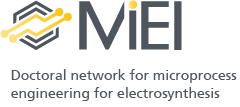MiEl aims to provide 12 doctoral candidates with the scientific and complementary skills they will need for a career in the field of electrochemical energy conversion. They will receive a firm grounding in the scientific skills needed for their individual project work, and a unique understanding of the interface between synthesis development, system engineering and market-relevant aspects. Training in entrepreneurship will help them to progress from theoretical to practical knowledge, and industrial secondments will allow them to experience different schools of thoughts and implement their knowledge in an industrial setting.
Local-level training
Each project partner will provide training to its recruited researchers based on their individual needs. This will involve:
- Training through research leading to a PhD
- Training in transferable skills, such as language and presentation skills or project management
- On-the-job training and specialised scientific and practical training courses relevant to the individual project work of the recruited doctoral candidates
- Visits and secondments, especially to industrial and applied research partners
Network-level training
Seven network-wide training units will be held during the project, aiming to provide the recruited doctoral candidates with the interdisciplinary knowledge needed to transfer their results into industrial applications:
- Training unit 1: Basics of microfluidic technology and electrochemistry – ca. October 2023
- Training unit 2: Specific electrosynthesis and analytics – ca. March 2024
- Training unit 3: Simulation, validation and identification of applications – ca. October 2024
- Training unit 4: Workshops on different chemistries (imaging, modelling and simulation of electrode structures and electrochemical flow cells / 2-phase electrochemistry / green electrochemistry) – ca. May 2025
- Training unit 5: Cells and cell materials – ca. September 2025
- Training unit 6: Process engineering and evaluation of “sweet spots” in electrosynthesis – ca. March 2026
- Training unit 7: Public workshop “Next Generation” – ca. July 2026
Contact
Dr. Robin Kunkel (Project Coordinator)
+49 721 4640 504
Carolyn Fisher
+49 721 4640 277
Fraunhofer Institute for Chemical Technology
Joseph-von-Fraunhoferstraße 7
76327 Pfinztal (Berghausen), Germany
Funding

Funded by the European Union (Grant Agreement no. 101073003). Views and opinions expressed are however those of the author(s) only and do not necessarily reflect those of the European Union. Neither the European Union nor the granting authority can be held responsible for them.
Social media
LinkedIn: MiEl – Doctoral network for microprocess engineering for electrosynthesis
Twitter: project_MiEl
Data privacy information
Imprint and Disclaimer
